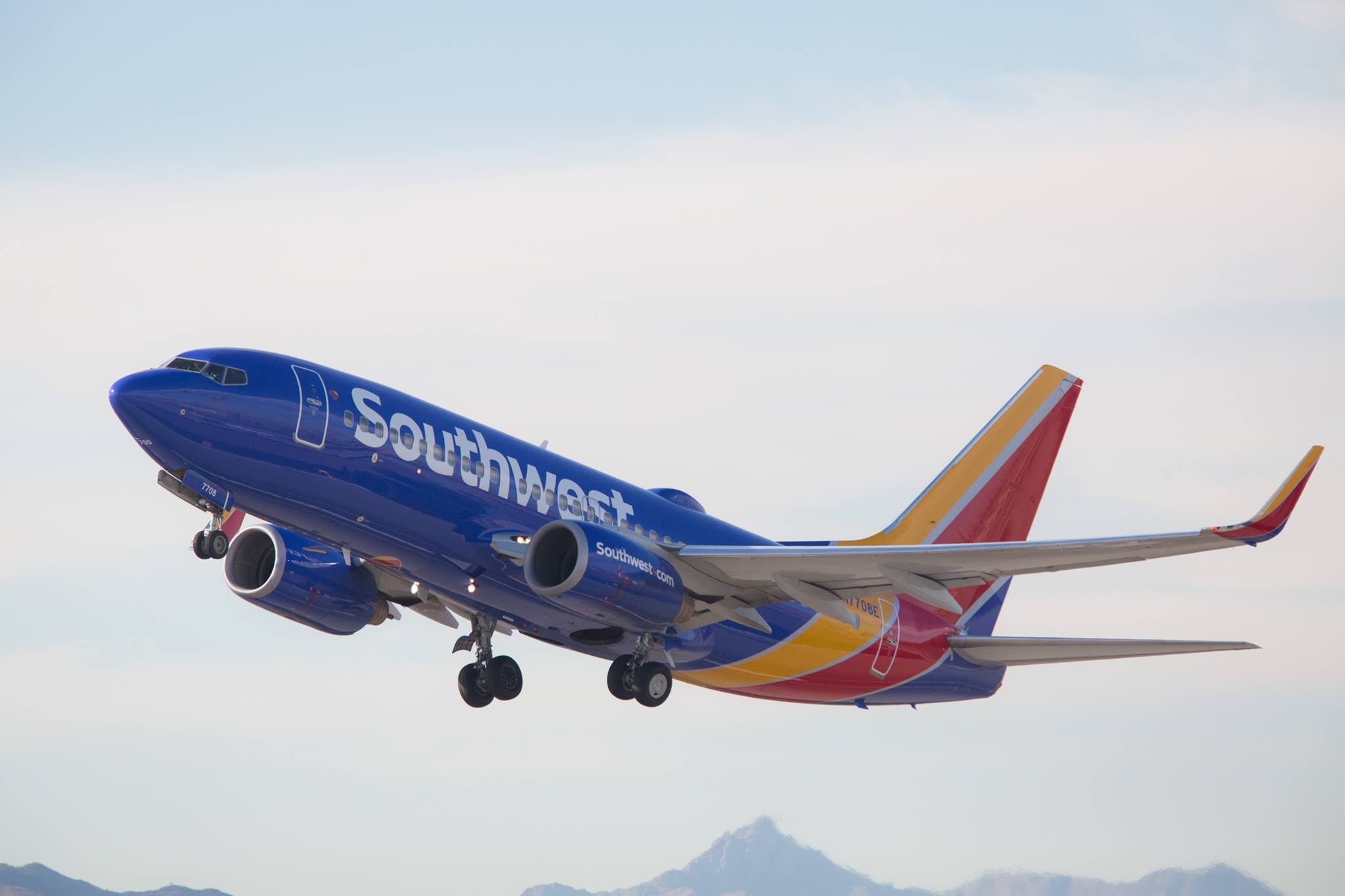Last week, Southwest Airlines (LUV 1.55%) announced that it had won over half of the slots that American Airlines (AAL 4.04%) is divesting at Washington's Reagan National Airport. The slot sale was demanded by the U.S. Department of Justice to improve competition at Washington's most popular (and crowded) airport.

Southwest Airlines will be expanding at Washington's Reagan Airport later this year.
Southwest's winning bid will allow it to expand its flight schedule at Reagan Airport by about 150%, from 17 daily departures today to 44 daily departures by the third quarter. This is likely to add significant competition on a variety of routes, particularly those flown by American and United Continental (UAL 2.30%), leading to lower fares.
Ripe for competition
Due to slot constraints and the high concentration of slots in the hands of one carrier -- the new American Airlines -- many key routes from Reagan Airport have little head-to-head competition. For example, American Airlines has a monopoly on the route from Reagan Airport to Dallas. United Airlines has a near-monopoly on flights to Houston -- Southwest offers the only competition, and flies the route just twice a day.
In deciding how to use its extra 27 slot pairs, Southwest is likely to focus on building up service to cities where it is already strong, and that currently don't have much competition to Reagan Airport. Let's take a look at some of the top candidates.
Looking at the top 10
Among Southwest's top 10 cities (by daily departures), only six fall within the 1,250 mile perimeter that governs most flights from Reagan Airport. Excluding the nearby Baltimore-Washington International Airport, the remaining five are: Chicago (Midway), Atlanta, Houston (Hobby), Dallas (Love Field), and Orlando. Among these five cities, Southwest (including its subsidiary AirTran) currently offers six daily non-stops to Atlanta and two non-stops to Houston.
For major cities in its route network, Southwest very commonly offers five to 10 daily round-trips, although in a few cases, it offers up to 20 daily flights. Thus, Southwest will probably want to add at least five daily flights to Chicago, Dallas, and Orlando, while also significantly boosting its schedule to Houston. (The Dallas flights will not be able to start until October.) A small increase in Southwest's Atlanta flight schedule is also possible.
Southwest Airlines could potentially use all of its new Reagan Airport slots for serving these top-tier cities. However, Southwest may want to branch out more, with flights to some slightly smaller cities where it is the top carrier. St. Louis and Nashville are the main candidates here.
Southwest currently has around 90 daily departures from St. Louis, including two to Reagan Airport. American is the only competitor on this route, and St. Louis is big enough to potentially support two to three more Southwest flights to Reagan Airport.
Southwest also has a big presence in Nashville, with around 80 daily departures. American Airlines and U.S. Airways have been the only airlines serving the Reagan Airport-Nashville route, so their merger gave them a monopoly there. Southwest's leading position in Nashville justifies offering three to four daily flights to Reagan Airport.
The competitive landscape
By chance, Southwest's looming expansion at Reagan Airport will affect United and American more than Delta Air Lines. Atlanta is the only Delta hub within the Reagan Airport flight perimeter with significant Southwest service, but Southwest already has six flights a day from Reagan Airport to Atlanta. It's not likely to add more than one or two to that schedule, given the other opportunities it has.

Southwest may add a lot of flights in direct competition with American Airlines. Source: American Airlines.
American Airlines, as the dominant carrier at Reagan Airport, has the most to lose. For years, its US Airways subsidiary has profited from Reagan's status as one of the most overpriced airports for U.S. air travelers. Going forward, Southwest is almost certain to add flights to Dallas and Chicago, two American Airlines hub cities, bringing down fares for those routes. If Southwest adds service to Nashville and St. Louis, American will again be the biggest loser.
United will be the second most affected airline, since Southwest will probably increase service to Houston (United's top hub city), making it a more viable competitor on that route. United has its second-largest hub in Chicago, so like American, it will be worse off if Southwest starts flying to Chicago from Reagan Airport. Lastly, United could be hurt by a drain of traffic from its hub at the less-convenient Dulles Airport if fares fall at Reagan Airport.
Foolish conclusion
Washington, D.C., has historically been plagued by high airfares because of travelers' preference for slot-constrained Reagan Airport. The upcoming DOJ-mandated slot divestiture won't completely fix that problem, but it should definitely help. With more slots, Southwest (and to a lesser extent, JetBlue Airways) will add meaningful competition on some of the most heavily traveled routes out of Reagan Airport.
American and United will have to accept somewhat lower profit margins on their Washington operations. Still, this will have a relatively minimal impact on their bottom lines, given that both companies have massive global scale. Meanwhile, their pain will be the traveling public's gain!








